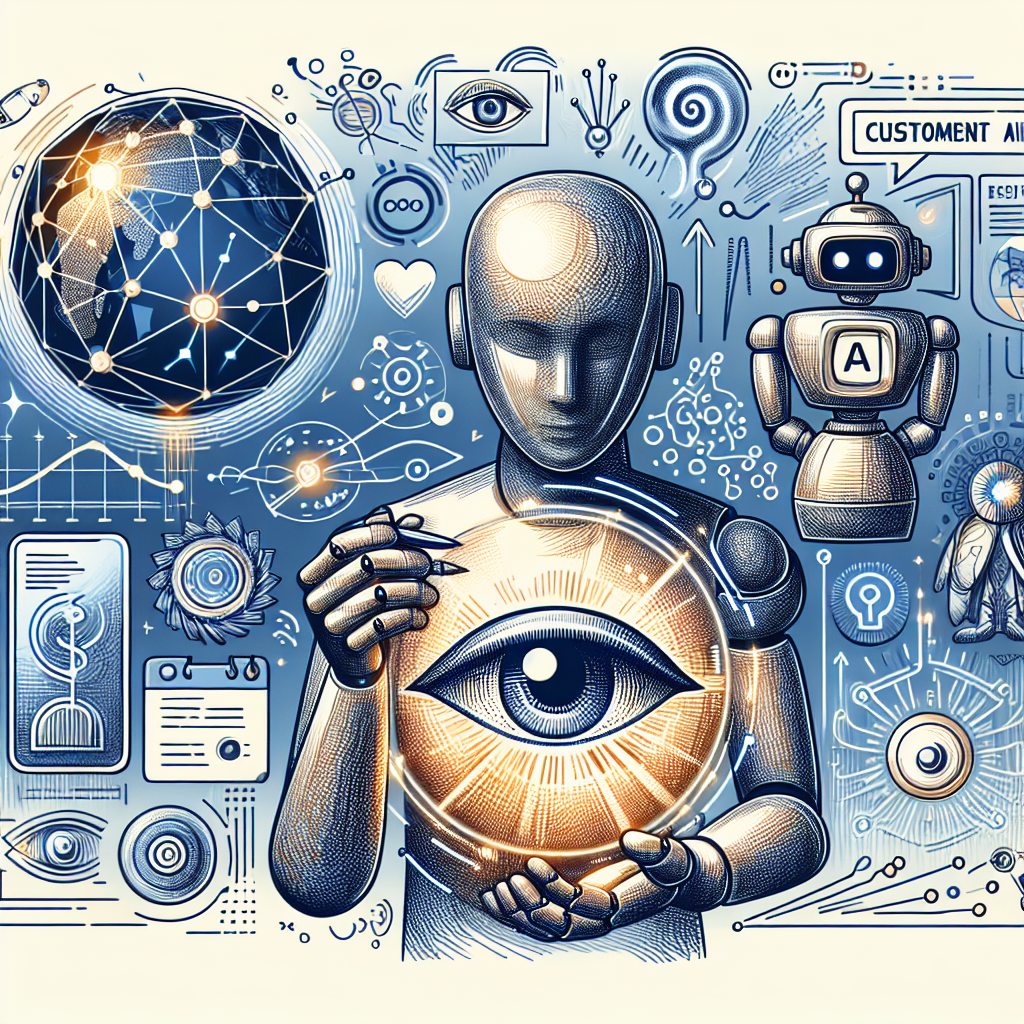In today’s fast-paced digital world, customer service has become a critical component of a company’s success. As consumers expect faster responses and personalized interactions, businesses are turning to artificial intelligence (AI) to enhance their customer service capabilities. AI has the potential to revolutionize the way companies interact with their customers, providing predictive customer service that anticipates and meets their needs before they even realize them.
The Role of AI in Predictive Customer Service
AI technology has made significant advancements in recent years, enabling companies to leverage data and machine learning algorithms to predict customer behavior and preferences. By analyzing vast amounts of data from various sources, including customer interactions, purchase history, and social media activity, AI can identify patterns and trends that help businesses anticipate customer needs and provide proactive support.
One of the key benefits of predictive customer service is the ability to personalize interactions with customers. AI can analyze customer data in real-time to create personalized recommendations, offers, and responses that cater to each individual’s preferences and needs. This level of personalization not only enhances the customer experience but also increases customer satisfaction and loyalty.
Another important role of AI in predictive customer service is its ability to automate routine tasks and processes. By using chatbots and virtual assistants powered by AI, companies can handle customer inquiries and resolve issues quickly and efficiently, without the need for human intervention. This not only reduces the workload on customer service agents but also ensures consistent and timely responses to customer queries.
AI can also help companies identify potential issues before they escalate into larger problems. By analyzing customer feedback and sentiment data, AI can detect patterns that indicate dissatisfaction or frustration among customers. Companies can then take proactive measures to address these issues and prevent them from affecting a larger portion of their customer base.
Furthermore, AI can assist companies in predicting customer preferences and behavior, enabling them to tailor their marketing and sales strategies accordingly. By analyzing data on past interactions and purchases, AI can forecast which products or services are likely to appeal to specific customers, allowing companies to target their marketing efforts more effectively.
Overall, AI plays a crucial role in enabling companies to deliver predictive customer service that anticipates and meets the needs of their customers in real-time. By leveraging AI technology, companies can enhance the customer experience, increase customer satisfaction, and ultimately drive business growth.
FAQs
Q: What is predictive customer service?
A: Predictive customer service is a strategy that uses AI technology to anticipate and meet the needs of customers before they even realize them. By analyzing customer data and behavior patterns, companies can predict customer preferences, issues, and concerns, and proactively address them to enhance the customer experience.
Q: How does AI enable predictive customer service?
A: AI technology enables predictive customer service by analyzing vast amounts of data from various sources, including customer interactions, purchase history, and social media activity. By using machine learning algorithms, AI can identify patterns and trends that help businesses anticipate customer needs and provide proactive support.
Q: What are the benefits of predictive customer service?
A: The benefits of predictive customer service include enhanced customer experience, increased customer satisfaction and loyalty, improved efficiency and productivity, and more effective marketing and sales strategies. Predictive customer service enables companies to personalize interactions with customers, automate routine tasks, identify potential issues before they escalate, and predict customer preferences and behavior.
Q: How can companies implement predictive customer service?
A: Companies can implement predictive customer service by leveraging AI technology to analyze customer data, create personalized recommendations and responses, automate routine tasks, and predict customer preferences and behavior. By integrating AI-powered tools such as chatbots and virtual assistants into their customer service processes, companies can deliver predictive customer service that anticipates and meets the needs of their customers in real-time.

